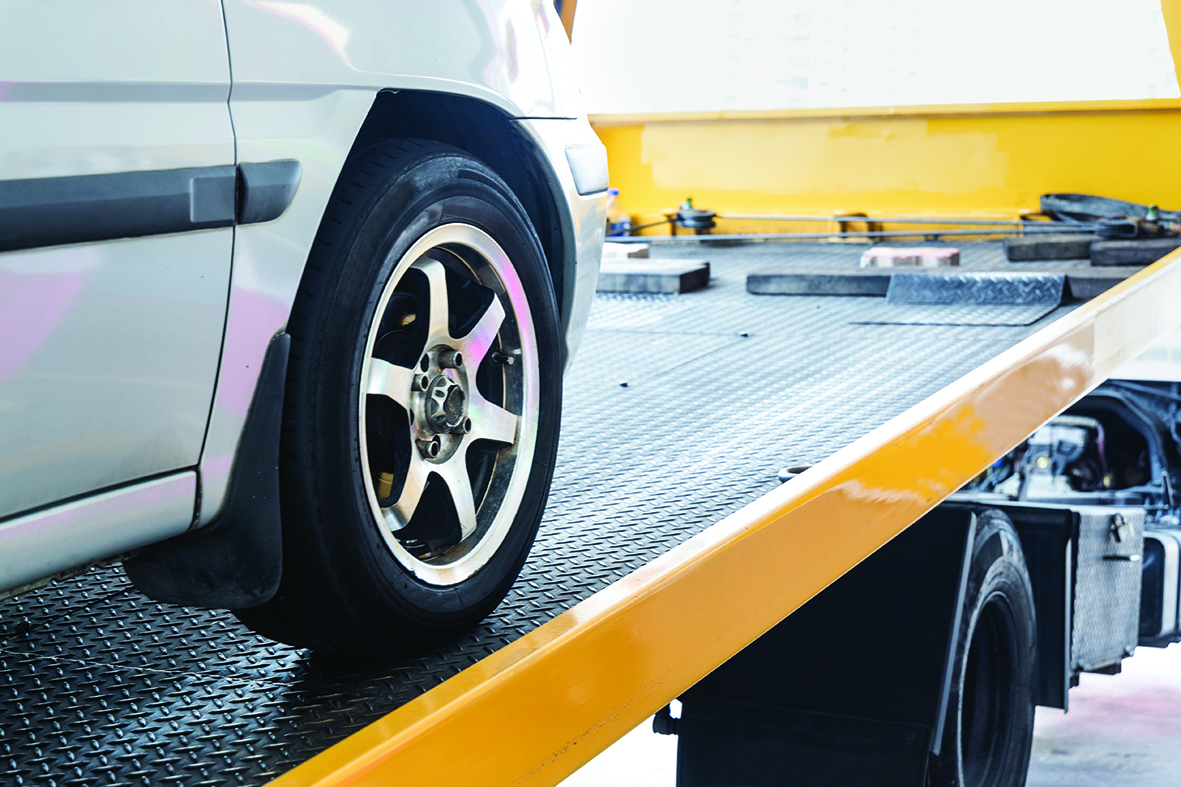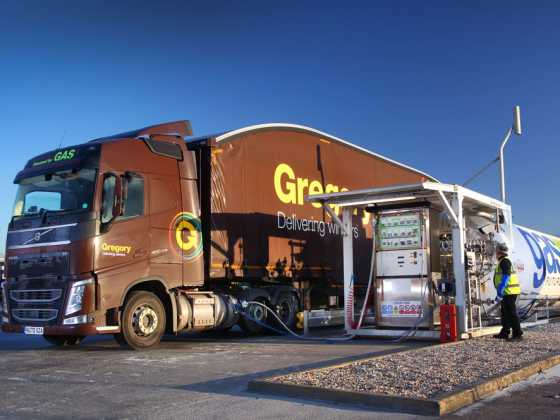Reducing vehicle downtime in SME fleets

Service, maintenance and repair (SMR) is often cited as a burdensome task for small to medium businesses, but it is an essential component in running a cost-effective, safe and compliant fleet
There were 5.7 million SMEs in the UK in 2018, which was over 99 per cent of all businesses, according to the House of Commons Business statistics.
Many of these businesses rely on a vehicle to conduct their business, and breakdowns can cause havoc in terms of lost times, missed appointments and delayed deliveries.
The most common RAC SME call- outs relate to batteries, including flat or end-of-life batteries. In total, battery issues equate to 18 per cent of all RAC breakdown jobs for small businesses.
Tyres are responsible for generating the second biggest volume of call-outs, making up 13 per cent of all breakdowns. And, with many vehicles now not having a spare wheel, a significant number of these will be ‘puncture no spare’ jobs, which would typically be very difficult for a business to get fixed without the support of a breakdown company.
Clutch problems are the third most common SME vehicle breakdown seen by RAC patrols. While only five per cent of RAC small business call-outs relate to clutch faults, they usually require recovery to a garage for repair.
While breakdowns are an unfortunate reality of running a fleet, having robust Service, Maintenance and Repair (SMR) procedures in place can keep vehicles in good health and on the road. But SMR is also cited as one of the more problematic areas for SMEs, often because of the lack of time they can give it, as many SMEs also have other roles aside from managing vehicles.
Legal responsibilities
Organisations running fleets have a legal responsibility under their duty of care to keep their business vehicles in roadworthy condition. If there is a serious accident and vehicle condition is found to be a factor, the owners and directors can be prosecuted and even imprisoned.
Accurate records of vehicle documentation such as MOT test certificates, insurance certificates and Operator Licences should be available in one place in preparation for audit and inspection if needed.
What’s more, well maintained vehicles are generally cheaper in the long term. This is because they tend to perform at optimum efficiency, and because minor problems can be rectified before they become major ones if they are identified early on. Unplanned maintenance increases vehicle downtime and costs. Plus, a vehicle with a full set of service stamps in its history will usually be worth substantially more when the time arrives for it to be sold.
SMR policies
To get their SMR procedures in place, fleet managers need to establish an SMR policy.
According to Allstar Fuel Cards, who have published a guide on the subject, you should firstly consider how often servicing is recommended by the manufacturer and what kind of suppliers you need to use – franchise dealers, independent garages or fast-fits?
Asks yourself if drivers regularly inspect their vehicles, and if so, how often? Have you provided them with guidelines on making an inspection and created a robust feedback mechanism?
Replacing key wear items such as tyres and brake pads often involves making a choice. Can you set a policy in this area? For example, you could decide that tyres will be replaced when there is 3mm of wear left.
Fleet managers should also think about what management tools might be useful in managing the fleet, such as spreadsheets, white boards and specialist fleet software systems.
If you are investigated by the Health and Safety Executive in the event of a serious accident, an auditable trail to prove that a vehicle has been kept in good condition will form an essential part of your defence.
Finally, the value for money from suppliers should be considered, as well as whether you can gain greater control over payments and billing.
Suppliers
A supplier should be chosen that best fits your business and driver, including its location.
You will need to consider if the supplier offers good value, how available they are, and if a courtesy car will be available. Can they carry out the work required to a good standard? If you have a fleet of alternatively fuelled vehicles, do they have the skills, equipment and spares to deal with it?
Finally, you should have a good relationship with the supplier, so that they can be relied upon to fix a vehicle quickly, and to charge fairly and transparently.
Managing drivers
The amount of driver’s responsibility for SMR should be considered. In some small- medium business fleets, especially those that operate on a national basis with a central head office, the entire responsibility for
maintaining vehicles is passed over to the driver – they monitor when a vehicle needs servicing or repair, choose the supplier then make the payment and reclaim the cost.
Passing responsibility to the driver is normally not a good way of managing SMR, simply because it means that you are abdicating control in virtually every area. There is no way of ensuring that the work being carried out is actually needed, that suitable suppliers are being used, that you are meeting your legal responsibilities such as timely MOTs and servicing, that the duty of care is being met, that consolidated invoices can be supplied, and that the business is not being defrauded.
Instead, Allstar Fuels believes that the person responsible for managing company vehicles should keep records that indicate when service and maintenance is due, and should stay on top of the administration for vehicles on the company’s behalf, keeping control of all the key aspects.
However, it is very important that drivers are made responsible for monitoring the basic condition of their vehicle on a day-to-day basis.
Value for money
It can be difficult to know whether you are getting value for money when it comes to the cost of servicing and maintenance. Research from Allstar Fuel Cards shows that fleet budgeting for SMEs is based largely on experience and expectations of what seems acceptable, although this is usually based on nothing more than personal opinion.
The fact is, for many small-medium businesses, researching this kind of pricing is not easy. You can try looking online for typical prices but comparing information in a like-for-like manner is tricky. In many ways, the best that you can do is follow the tried-and-tested formula of asking for three quotes from different suppliers, even though this can be time-consuming.
Approving work
One of the most difficult financial aspects of SMR is that unforeseen jobs will often occur during planned maintenance that require approval. For example, during a routine service, it could be identified that new tyres are needed.
Research from Allstar Fuel Cards shows that 65 per cent of managers with company vehicle responsibility in small-medium businesses manually approve all service, maintenance and repair work by phone or e-mail, but that they find it, understandably, very time-consuming.
Other methods of approval are occasionally used. Some have a key system of control that requires approval if any
bill is more than £500 for example, but a few simply pay whatever bills appear.
The fact is that like trying to ascertain whether an SMR price is good when booking
a job in the first place, assessing the fairness of additional work is simply very difficult and most businesses have little choice but to agree. Allstar has conducted analysis of transactions and found that around 11 per cent of jobs completed by garages are not needed – and that these jobs cost an average of £48.
Payments
Paper invoicing systems remain the norm when it comes to paying for car and van maintenance, according to research from Allstar Fuel Cards. However, this is a process that is prone to error, time consuming
and even open to employee fraud.
A much better choice is to use electronic, centralised invoices from suppliers, which will allow you to process payments quickly and easily, as well as seeing what work has been completed at a glance.
A few companies still use driver pay- and-reclaim which is not recommended. It leaves the driver out of pocket for a while and the employer open to fraud, with little centralised control.
A key point is that you need to ensure that all invoices you receive are genuine VAT invoices and are fully HMRC compliant.
Management tools
There are a wide range of software management tools available on the market for small-medium businesses that provide a good management structure for looking after SMR and all other aspects of company vehicle management.
The quality and sophistication of software management tools vary quite widely, as does their cost and effectiveness, and the initial setting up process can be quite time- consuming. Once in place, though, they will deliver a level of management control and information that is simply not possible using a spreadsheet or paper systems






